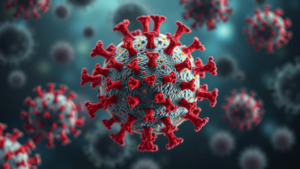The Brain Song reactivates this hidden power using soundwave technology. Just listen 7 minutes a day and feel the difference.
Norovirus is a highly contagious virus that causes gastroenteritis, leading to inflammation of the stomach and intestines. Symptoms typically include severe vomiting, diarrhea, stomach cramps, and nausea. Norovirus infections can occur at any time of the year but are particularly notorious in the winter months, often resulting in outbreaks in close quarters such as schools, nursing homes, and cruise ships.
The transmission of norovirus is primarily through the fecal-oral route, which can happen in several ways:
- Consuming contaminated food or water.
- Touching surfaces or objects contaminated with the virus.
- Having direct contact with an infected person.
The Brain Song reactivates this hidden power using soundwave technology. Just listen 7 minutes a day and feel the difference.
Preventing norovirus infection is crucial, especially during outbreaks. Simple hygiene practices can significantly reduce the risk:
- Frequent handwashing with soap and water, especially after using the restroom and before eating.
- Disinfecting surfaces with bleach-based cleaners, particularly in communal areas.
- Cooking shellfish thoroughly before consumption.
Even though most people recover within 1 to 3 days, norovirus can lead to severe dehydration, particularly in young children, the elderly, and those with compromised immune systems. If symptoms persist or worsen, medical attention should be sought immediately.
Public health agencies emphasize the importance of reporting outbreaks and following sanitation protocols to prevent the spread of norovirus. As awareness of norovirus continues to grow, so does the need for effective prevention and response strategies to manage this resilient and pervasive virus.


